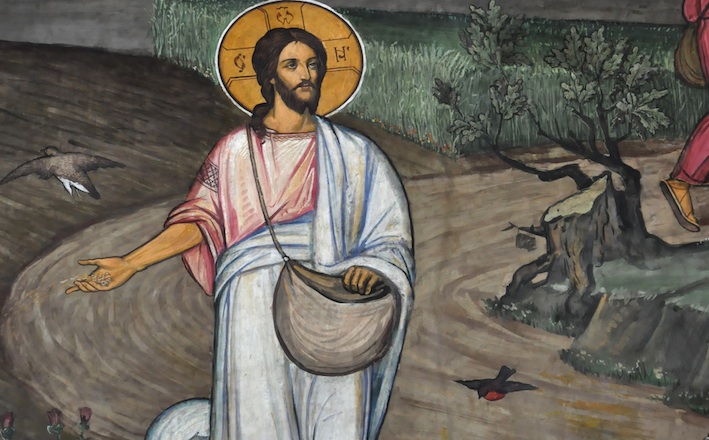Commentary on Isaiah 55:10-13
Second Isaiah begins with the word “Comfort!” in 40:1.
Through the following fifteen chapters the prophet creates a vivid, expansive vision of what comfort will mean for the exiles of Judah and assures them that it is coming soon. Restoration and renewal are germinating just under the surface of the earth: “I am about to do a new thing; now it springs forth (literally “sprouts”), do you not perceive it?” the prophet challenges in 43:19. Isaiah 55:10-13 is the concluding word of Second Isaiah, and it echoes the promises of the earlier chapters, declaring that these promises will be as life-giving for the exiles as the rain and the snow are for the earth.
Using the natural imagery of verses 10-13, the prophet expresses both the thrill as well as the inevitability of the people’s approaching redemption. Verses 10-11 describe the work of the word of God in terms of the way precipitation works when it falls to earth. The NRSV translation uses the participles “making” and “giving” in verse 10 which communicate the ongoing action of the rain/word of God: “For just as the rain and snow come down from heaven, and do not return there until they have watered the earth, making it bring forth and sprout, giving seed to the sower…so shall my word be…” The word of God has come down from heaven, already it is working steadily, accomplishing what it was sent to do. It is only a matter of time before the signs of the people’s restoration will appear. Restoration is as inevitable as the sprouting of greenery after rainfall.
In the second half of the reading, verses 12-13, the prophet continues to draw from the imagery of the natural world, but in this case the natural world displays human characteristics. Mountains and hills are singing; trees are clapping their hands. The participation of the natural world in the restoration of the people is a thread that runs throughout Second Isaiah. We don’t see trees clapping elsewhere in the book, rather, the natural world serves as the stage on which the glory of God will be revealed (40:3-5). In a striking scene from 41:17-20, the non-human creation is renewed and transformed from a wilderness to an Edenic landscape, and 55:13 recalls that scene of transformation: “Instead of the thorn shall come up the cypress; instead of the brier shall come up the myrtle…” All of creation experiences and benefits from the revelation of God’s glory. Even the other nations are blessed when God’s blessing is poured out on the exiles (42:10-13).
There are many directions one might take in preparing to preach on this rich poetic text. Considering the epistle and gospel readings for this Sunday, my suggestion would be to focus on the over-abundance of God’s blessing. In the parable of the sower, God appears as an irresponsible steward of the seed, scattering the seeds of redemption even where they don’t have a hope of sprouting. In Isaiah, God’s act of redeeming a small group of exiles will transform the entire world. We might read this as both a cause of great rejoicing as well as humility. God’s desire to bless and re-create is mind boggling in its immensity and power. Before such a God, our imaginations are alight with wonder and joy, not only for ourselves, but for all of God’s creation.


July 16, 2017